Abstract
Two terregenous and four marine bacterial isolates were treated with six antibiotics and antibiotic combinations. Comparisons made between responses of cells in early and late logarithmic and stationary growth phases indicated variable sensitivity to the agents. Bacteria in stationary and late log-phase cultures exhibited the greatest resistance, whereas the early log-phase cells exhibited greatest antibiotic susceptibility. We conclude that the tested antibiotics cannot be used for ecological purposes to delineate bacterial respiration in mixed microbial communities.
Full text
PDF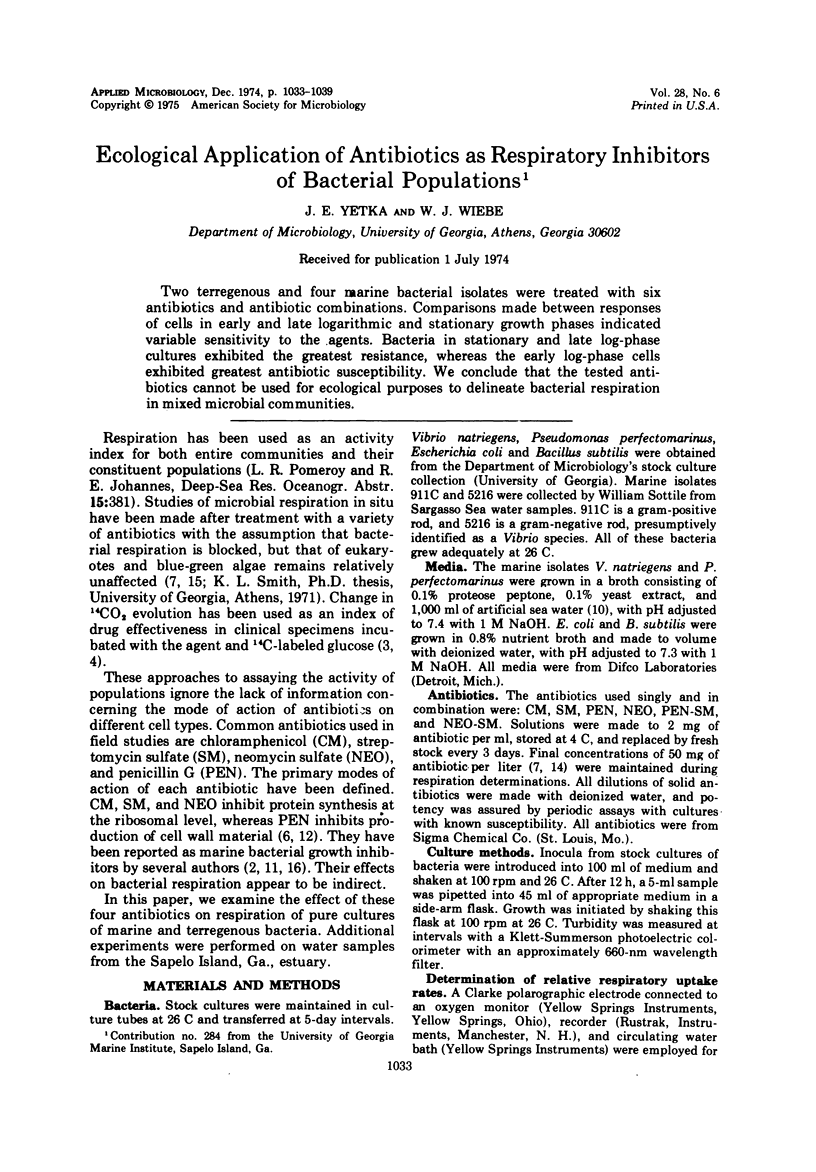
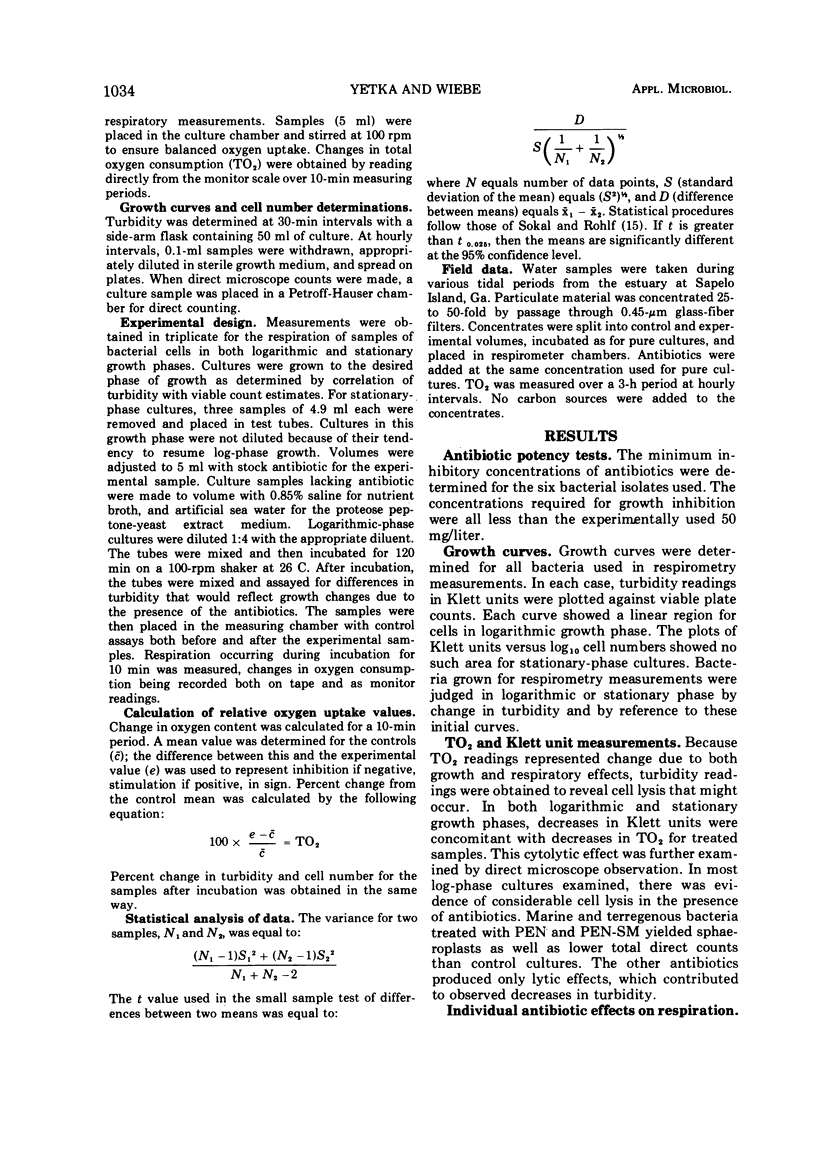
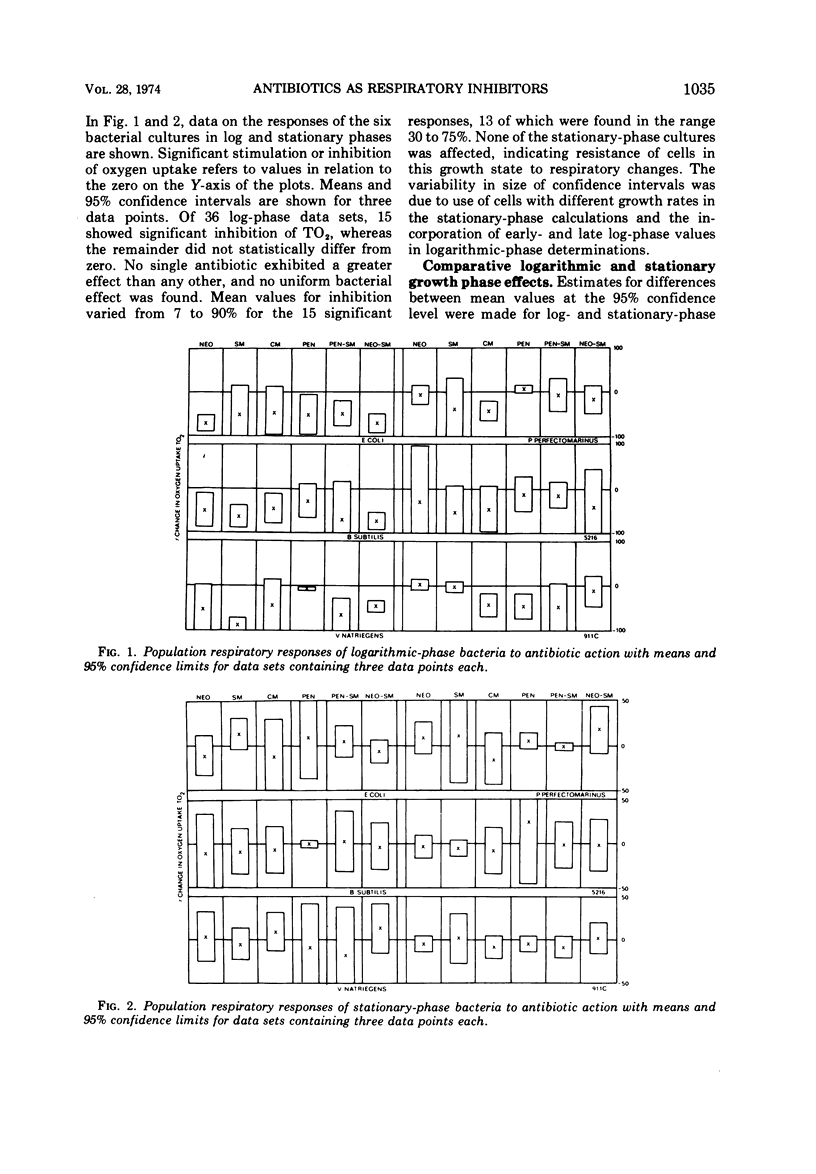
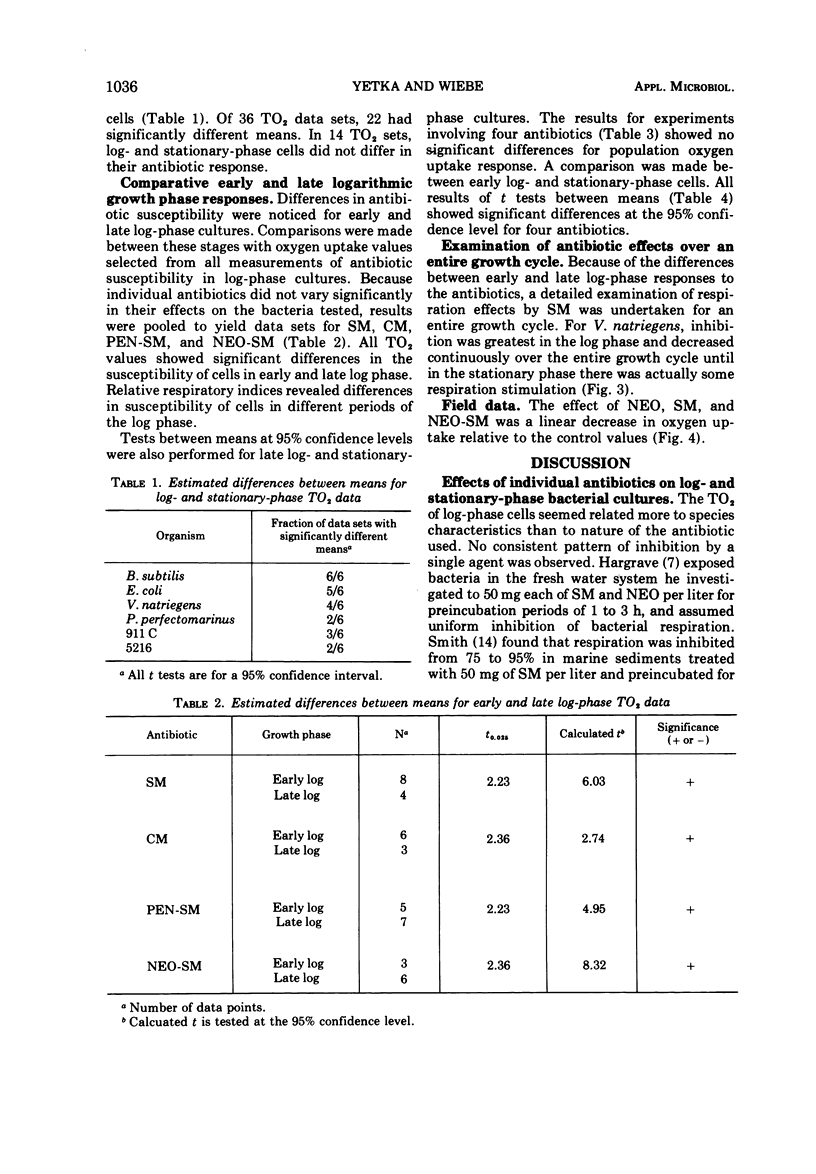
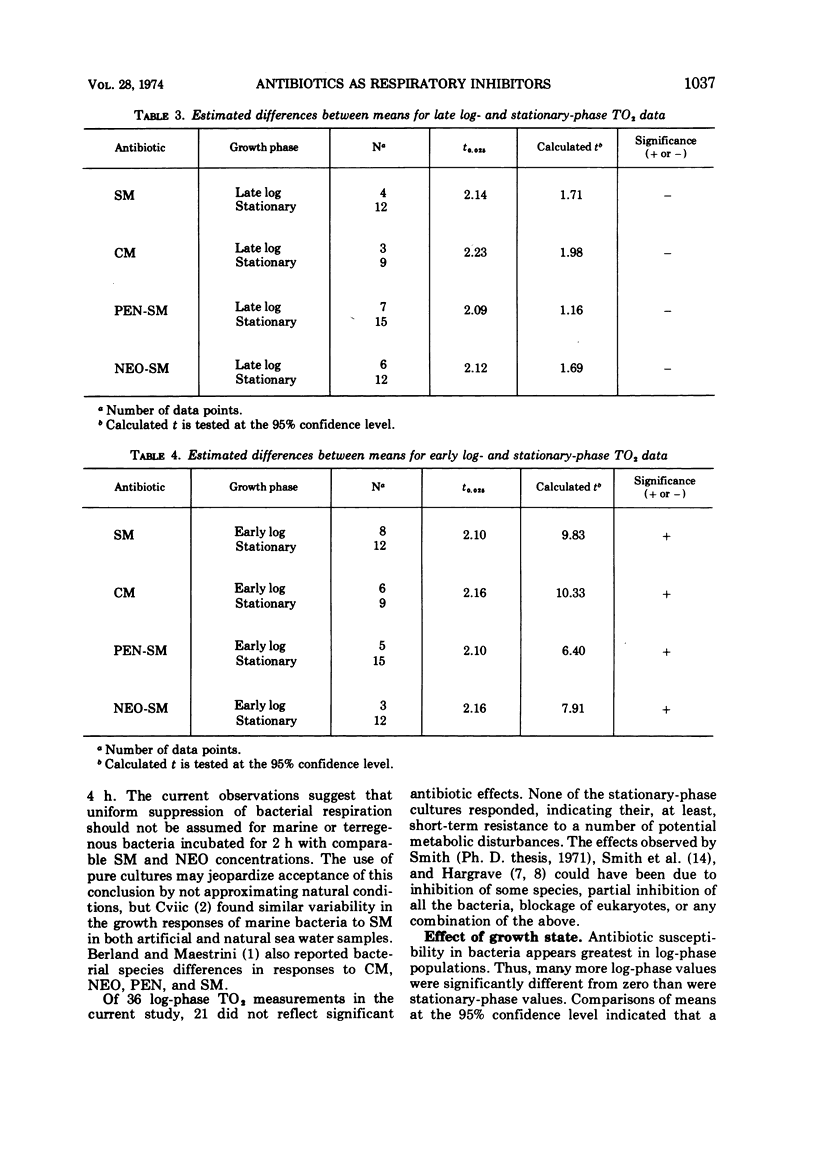
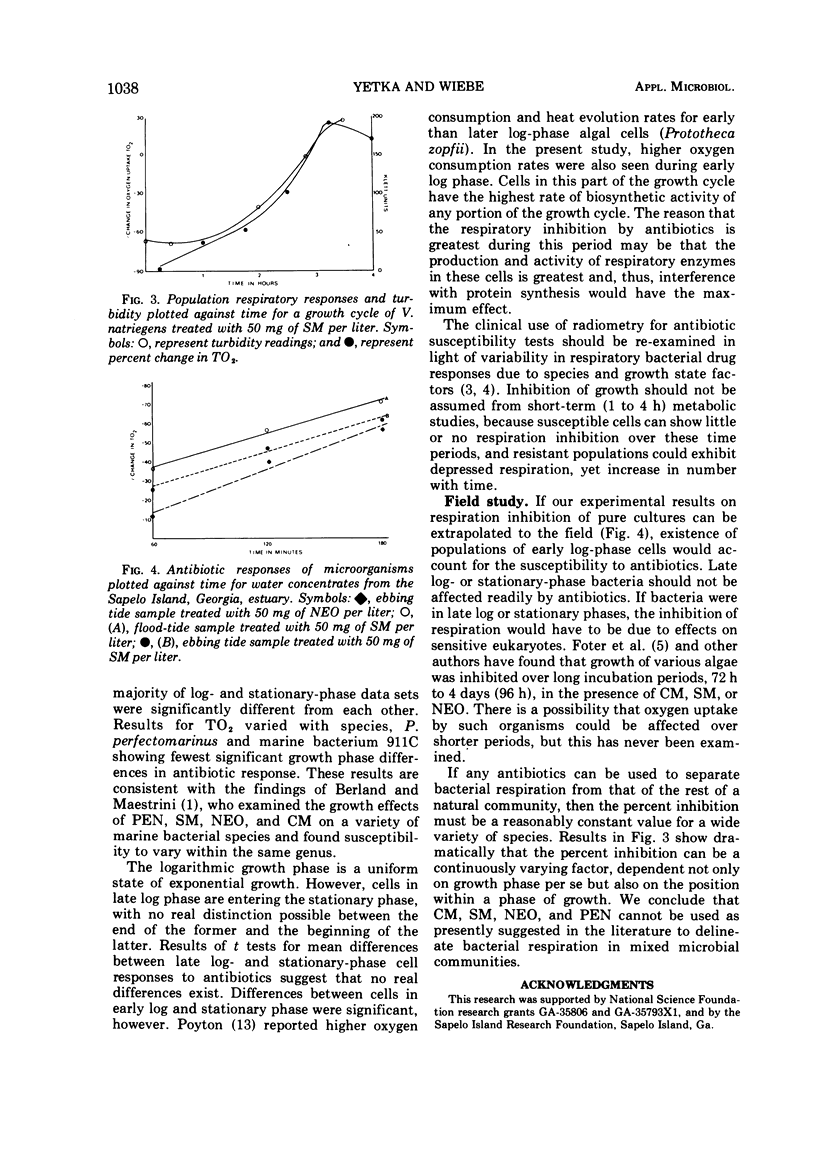
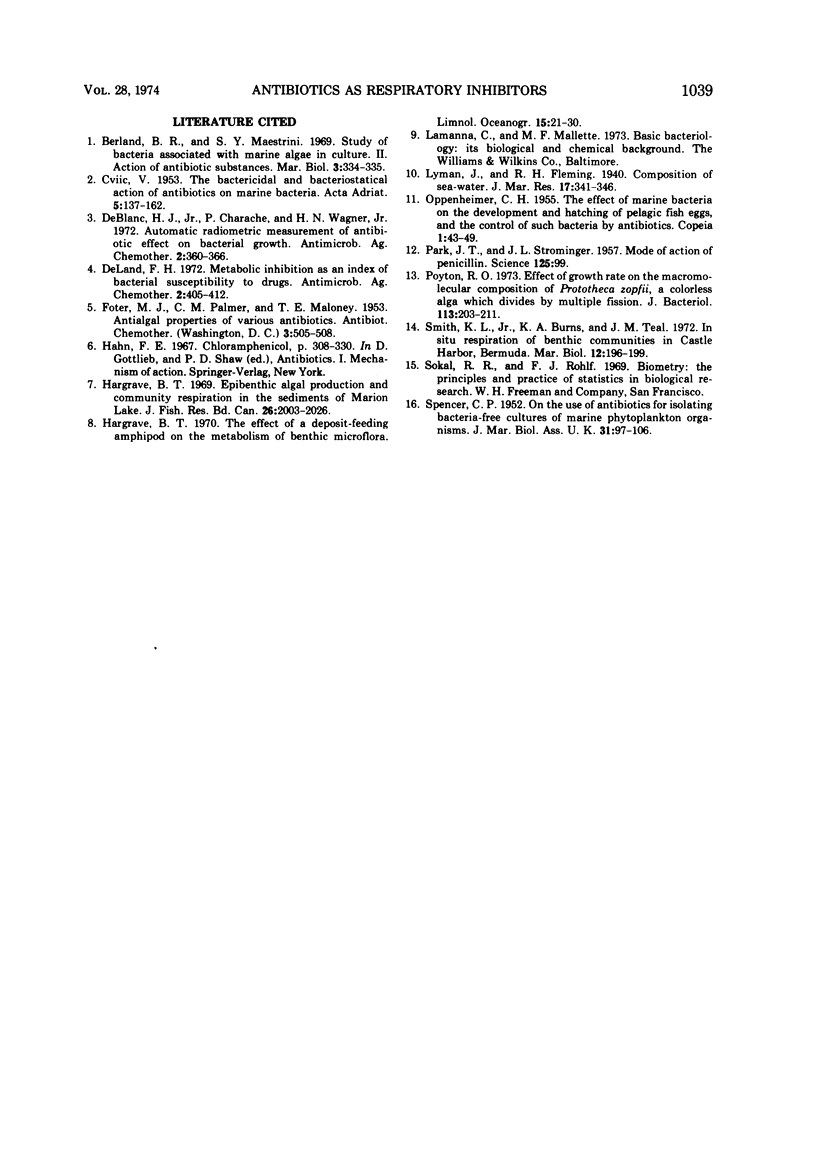
Selected References
These references are in PubMed. This may not be the complete list of references from this article.
- DeBlanc H. J., Jr, Charache P., Wagner H. N., Jr Automatic radiometric measurement of antibiotic effect on bacterial growth. Antimicrob Agents Chemother. 1972 Nov;2(5):360–366. doi: 10.1128/aac.2.5.360. [DOI] [PMC free article] [PubMed] [Google Scholar]
- DeLand F. H. Metabolic inhibition as an index of bacterial susceptibility to drugs. Antimicrob Agents Chemother. 1972 Nov;2(5):405–412. doi: 10.1128/aac.2.5.405. [DOI] [PMC free article] [PubMed] [Google Scholar]
- PARK J. T., STROMINGER J. L. Mode of action of penicillin. Science. 1957 Jan 18;125(3238):99–101. doi: 10.1126/science.125.3238.99. [DOI] [PubMed] [Google Scholar]
- Poyton R. O. Effect of growth rate on the macromolecular composition of Prototheca zopfii, a colorless alga which divides by multiple fission. J Bacteriol. 1973 Jan;113(1):203–211. doi: 10.1128/jb.113.1.203-211.1973. [DOI] [PMC free article] [PubMed] [Google Scholar]


